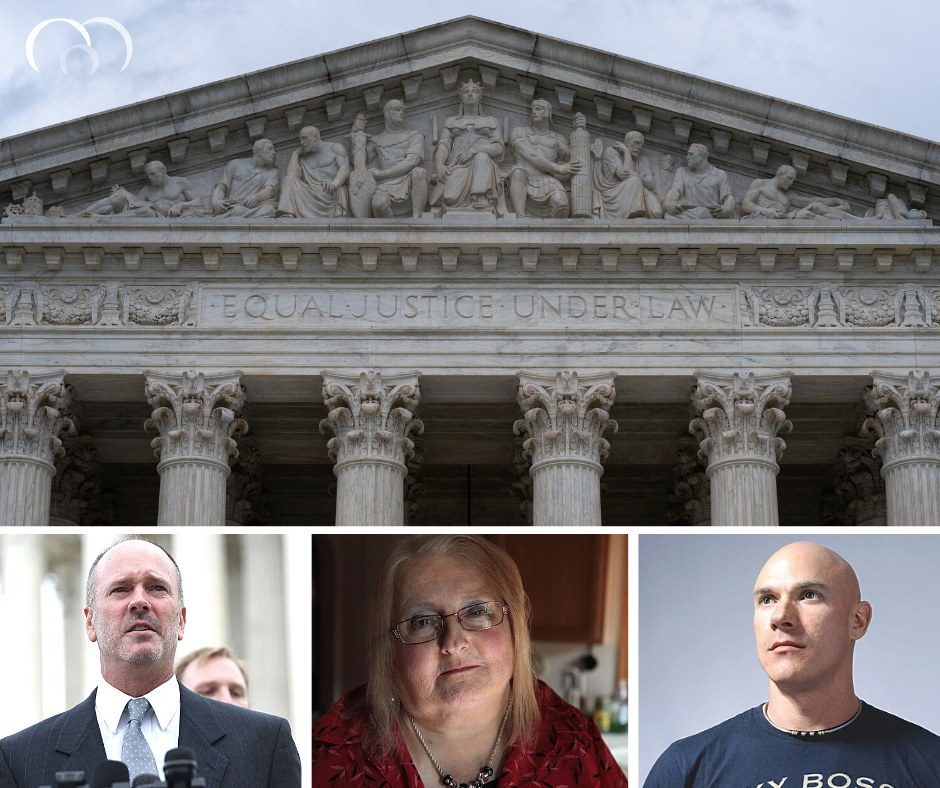[Blog Post] Race, Sex, Sexual Orientation and Gender Identity: America’s Civil Rights Whiplash
By: Amira Hasenbush
In case you’ve been living under a rock, here’s a quick update: America is all over the place. Pandemics of virus and racism are clashing as people fight for their lives, livelihoods, and their right to live. And to just add one more piece of conflict to the mix, the federal executive branch took away trans rights on Friday just in time for the Supreme Court to restore them on Monday. So, what’s really happening on the LGBT front and beyond? Read on…
On Friday, the Department of Health and Human Services issued new rules that rolled back Obama-era regulations under Section 1557 of the ACA (Affordable Care Act). Section 1557 is the nondiscrimination provision of the law, which states that health programs and activities that receive any federal assistance may not discriminate on the basis of race, color, national origin, sex, age or disability. In interpreting discrimination based on “sex,” the Obama administration issued rules stating that it prohibited discrimination based on sex stereotyping, termination of pregnancy and gender identity. On Friday, the current administration issued new rules which “omit[] overbroad provisions related to sex and gender identity,” eliminating the protections that had previously been put in place for transgender people and people who need abortions. The ramifications of such a choice could be extremely far reaching, BUT, its enforceability is now called into question by the Supreme Court.
Yesterday, in Bostock v. Clayton County, in a ruling that shocked many Americans, the United States Supreme Court ruled that the prohibition against employment discrimination based on sex under Title VII of the Civil Rights Act prohibits discrimination against gay and transgender people. In making that ruling, Justice Gorsuch wrote an extremely straightforward opinion on behalf of the Court’s 6-3 majority. In short, in order to make a distinction based on sexual orientation or gender identity, one MUST take into account sex. Therefore, any discrimination based on those characteristics is, by the plain meaning of the statute, discrimination because of sex. Now, interestingly, the word “bisexual” was never once used in the majority opinion, and they clearly write that sex discrimination includes discrimination against gay and transgender people, but it’s too soon to tell whether they would apply the same reasoning to bisexual folks, who make up more than half of the LGBT population. Additionally, the majority made it very clear that they were ONLY dealing with employment discrimination under Title VII, but their clear language made it pretty obvious that any other statutory language prohibiting sex discrimination will likely get the same interpretation.
Justice Alito, joined by Justice Thomas, in a confusing dissent, made some tortured arguments to try to claim that sexual orientation discrimination and gender identity discrimination are separate from sex discrimination and therefore should not be prohibited under the sex discrimination language. However, in an interesting choice, Alito laid out a long description of the history of discrimination against LGBT people in the United States and a roadmap for change moving forward. He went into extreme detail about the broader implications that the court’s ruling could expand to: restroom access, sports teams, and school housing assignments based on gender identity, access to healthcare rights including gender affirming surgery, rights to have pronouns respected, and possibly even a reconsideration of the Constitutional standard upon which to evaluate sexual orientation or gender identity discrimination under the Equal Protection Clause. He added a 16-page appendix, listing out every single federal law that prohibits discrimination based on sex. And in a Supreme Court first, Alito used the term “gender fluid,” and asserted that by his reading of the majority opinion, discrimination based on transgender status is discrimination because of gender identity, thus potentially opening the door to claims from gender fluid, nonbinary and other folks who fall under the trans umbrella but do not identify as strictly trans men or trans women.
Finally, Justice Kavanaugh, took time to write his own dissent, arguing that the court was using its powers to do the legislature’s job – that it was an overreach and that if courts up until this point didn’t find the ordinary meaning of sex to include sexual orientation and gender identity, then such meaning must not be so ordinary, and such decisions should be left to Congress.
When taking a step back, one can’t help but think of a quote from the activist Lilla Watson: “If you have come here to help me, you are wasting your time. But if you have come because your liberation is bound up with mine, then let us work together.” Over the last weekend, the lives and voices of Black trans women have been lifted up in protest, recognizing that all of our oppressions and liberations are bound together. As stated so well by author and activist, Sonya Renee Taylor, if we do not fight for our most marginalized, then all we are doing is trying to climb the hierarchy of oppression rather than destroy it. The Supreme Court’s ruling protecting gay and transgender people today came out of none other than the Civil Rights Act of 1964 – a law that was designed to combat racism. Because all people’s rights and humanity are bound together in a slow march towards justice and equity. Those whose individual rights have been brought forward by this ruling owe a debt of gratitude and shared work moving forward with those who came before them in different movements highlighting the needs of the underserved, including but not limited to, activists from the Civil Rights, Women’s Rights, Gay and Trans Rights movements.
“As stated so well by author and activist, Sonya Renee Taylor, if we do not fight for our most marginalized, then all we are doing is trying to climb the hierarchy of oppression rather than destroy it. ”
Today’s ruling means that Black trans women, who disproportionately end up unemployed, homeless, and working in underground economies because of systematic discrimination, including employment discrimination, will now have legal rights to pursue when they are denied employment or fired because of who they are. Based on history (and present), we know that implementation on the ground will be a different story. Protections will most likely be disproportionately bestowed upon their White and gay cisgender siblings, and the fight for equal protection under the laws meant to provide such protections will continue. But right now, the Supreme Court of the land has handed down a tool and a roadmap for change.
Almost more amazingly than the ruling, every decision – even the dissents – recognized and upheld the humanity of LGBT people: Alito stated that “To its credit, our society has now come to recognize the injustice of past practices…” relating to discrimination based on sexual orientation and gender identity. He acknowledged the humanity of the desire to treat gay and transgender people “with the dignity, consideration, and fairness that everyone deserves.” And Justice Kavanaugh took the end of his decision to congratulate the LGBT community for this momentous win: “Notwithstanding my concern about the Court’s transgression of the Constitution’s separation of powers, it is appropriate to acknowledge the important victory achieved today by gay and lesbian Americans. Millions of gay and lesbian Americans have worked hard for many decades to achieve equal treatment in fact and in law. They have exhibited extraordinary vision, tenacity, and grit—battling often steep odds in the legislative and judicial arenas, not to mention in their daily lives. They have advanced powerful policy arguments and can take pride in today’s result.”
The plaintiffs in this case, Aimee Stephens, Donald Zarda and Gerald Bostock each lost their jobs because of their sexual orientation or gender identity. Unfortunately, two of the three plaintiffs in this case, Aimee Stephens and Donald Zarda, did not live to see this Supreme Court ruling come out. But they, like the generations before them, and the generations that will come after, have paved one more brick on the path towards justice.

